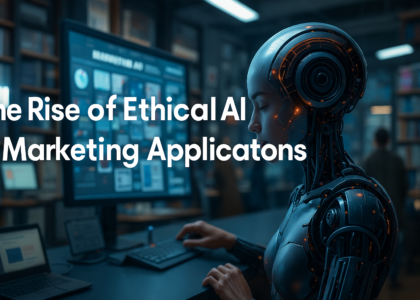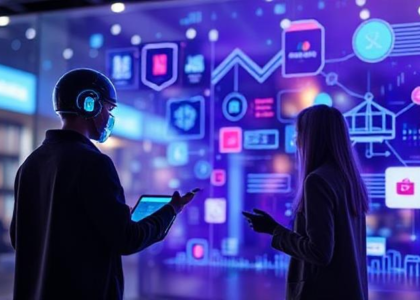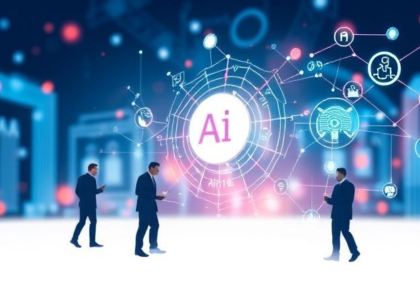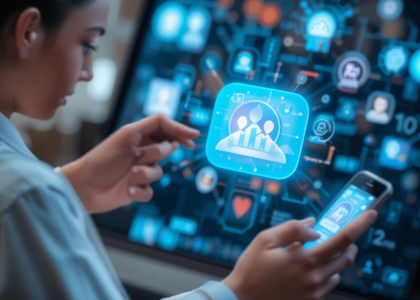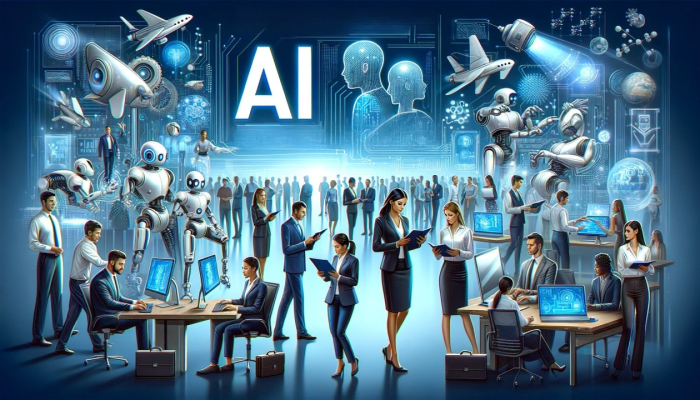
The world of work is undergoing a seismic shift, driven largely by the rapid advancements in artificial intelligence (AI). As AI tools become more sophisticated and widespread, they are not only changing the way we perform tasks but are also reshaping entire industries and job markets. The future of work is being defined by the integration of AI into daily operations, leading to increased efficiency, new job roles, and the transformation of traditional career paths.
In 2024 and beyond, the influence of AI on the workplace is expected to grow even more pronounced. From automating routine tasks to enhancing decision-making and fostering innovation, AI is becoming an indispensable asset in the modern workforce. However, with these technological advancements come questions and concerns about job displacement, the need for new skills, and the ethical implications of AI in the workplace.
This blog delves into how AI tools are shaping tomorrow’s jobs, exploring both the opportunities and challenges that lie ahead. We’ll examine the impact of AI on various industries, the types of jobs that are likely to emerge, and how workers can adapt to remain relevant in this rapidly changing environment. Whether you’re an employer looking to integrate AI into your business or an employee preparing for the future, understanding the role of AI in shaping the future of work is crucial.
The Current Landscape: AI’s Role in Today’s Workplace
AI has already made significant inroads into various industries, automating routine tasks, optimizing processes, and enabling better decision-making. In sectors like finance, healthcare, manufacturing, and retail, AI tools are being used to analyze large datasets, predict trends, and even interact with customers.
For instance, AI-powered chatbots are handling customer service inquiries, while machine learning algorithms help companies predict consumer behavior and personalize marketing efforts. In manufacturing, AI is improving quality control and reducing downtime by predicting equipment failures before they happen.
However, this is just the beginning. As AI technologies continue to evolve, their role in the workplace will expand, influencing not just how we work, but what work looks like.
The Evolution of Job Roles
One of the most significant impacts of AI is the evolution of job roles. Tasks that were once manual and time-consuming are now being automated, freeing up employees to focus on more strategic and creative work. This shift is leading to the emergence of new job roles that require a combination of technical skills and human creativity.
1. The Rise of Hybrid Jobs: In the future, many jobs will require both AI proficiency and domain-specific expertise. For example, a marketing professional might need to understand AI-driven data analytics to craft effective campaigns, while a healthcare worker might need to use AI tools to analyze patient data and provide more personalized care.
These hybrid jobs will require workers to be adaptable and continuously update their skills. The ability to work alongside AI and leverage its capabilities will become a critical competency in many fields.
2. Creation of New Job Roles: AI is also giving rise to entirely new job roles that didn’t exist before. These include AI trainers, who help teach AI systems how to perform tasks; data annotators, who prepare datasets for machine learning models; and AI ethicists, who ensure that AI systems are developed and used in an ethical manner.
As AI continues to evolve, we can expect even more specialized roles to emerge, requiring a blend of technical knowledge, creativity, and ethical considerations.
3. Redefining Existing Roles: While AI is creating new job roles, it is also redefining existing ones. Traditional roles in areas like administration, logistics, and data entry are being transformed by automation. Rather than replacing these jobs, AI is changing the nature of the work involved, shifting the focus from routine tasks to more complex problem-solving and strategic planning.
For example, in the finance industry, AI is automating tasks like transaction processing and fraud detection, allowing professionals to focus on advisory services and client relationships.
Skills for the Future Workforce
As AI continues to reshape the workplace, the skills required to thrive in this new environment are also changing. The future workforce will need to be equipped with a combination of technical skills, such as coding and data analysis, and soft skills, such as creativity, critical thinking, and emotional intelligence.
1. Technical Skills: To work effectively with AI, employees will need a solid understanding of how these technologies function. This includes knowledge of machine learning, data science, and programming languages like Python. As AI tools become more integrated into various industries, these technical skills will become increasingly important.
However, not everyone will need to be an AI expert. Many AI tools are being designed with user-friendly interfaces that allow non-technical professionals to leverage their capabilities. Understanding how to use these tools effectively will be a key skill in the future workplace.
2. Soft Skills: While technical skills are important, soft skills will be equally, if not more, valuable in the AI-driven workplace. As AI takes over routine tasks, human workers will need to excel in areas where machines fall short. This includes creativity, problem-solving, communication, and empathy.
For example, while an AI system might be able to analyze vast amounts of data, it is up to human workers to interpret these insights, make decisions, and communicate the findings effectively. The ability to collaborate with others, think creatively, and navigate complex social dynamics will be essential in a world where AI is prevalent.
3. Lifelong Learning: The rapid pace of technological change means that the skills required today may not be the same ones needed tomorrow. To stay relevant in the workforce, employees will need to adopt a mindset of lifelong learning. This means continuously updating their skills and being open to learning new technologies and methodologies.
Organizations will play a critical role in facilitating this continuous learning by providing training and development opportunities for their employees. This could include online courses, workshops, and on-the-job training that helps workers stay ahead of the curve.
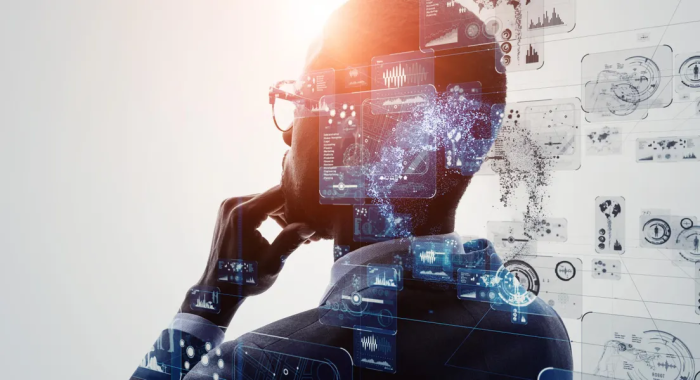
The Impact of AI on Employment
One of the most debated aspects of AI in the workplace is its impact on employment. While AI is expected to create new jobs and enhance existing ones, there is also concern about job displacement. As AI tools become more capable, they may take over certain tasks, leading to job losses in some sectors.
However, the impact of AI on employment is not a simple story of job loss. AI is also creating opportunities for workers to transition into new roles, particularly those that involve working alongside AI. The key to navigating this transition will be adaptability—both for workers and organizations.
1. Job Displacement and Transition: Certain industries, such as manufacturing and logistics, are likely to see more significant job displacement due to AI and automation. However, these industries are also likely to see the creation of new roles related to AI maintenance, programming, and oversight.
To manage this transition, governments and organizations will need to invest in retraining and upskilling programs. These programs can help workers transition from roles that are being automated to new opportunities created by AI.
2. The Role of Organizations: Organizations have a critical role to play in helping their employees adapt to the AI-driven workplace. This includes providing access to training, fostering a culture of innovation, and creating an environment where workers feel supported in their learning journey.
Companies that invest in their employees’ growth will not only help mitigate the effects of job displacement but will also be better positioned to take advantage of the opportunities that AI presents.
Ethical Considerations and the Future of Work
As AI becomes more integrated into the workplace, ethical considerations will become increasingly important. Issues such as data privacy, algorithmic bias, and the impact of AI on job displacement will need to be addressed.
1. Data Privacy: AI systems rely on vast amounts of data to function effectively. However, the collection and use of this data raise important privacy concerns. Organizations will need to ensure that they are collecting and using data in a way that respects individuals’ privacy rights.
This will require a careful balance between leveraging data for AI applications and maintaining trust with employees and customers.
2. Algorithmic Bias: AI systems are only as good as the data they are trained on. If this data is biased, the AI system may produce biased outcomes. This is particularly concerning in areas like hiring, where biased algorithms could lead to discriminatory practices.
To mitigate this risk, organizations will need to be vigilant in monitoring and auditing their AI systems for bias. This includes ensuring that the data used to train AI models is diverse and representative.
3. The Human-AI Relationship: As AI becomes more prevalent in the workplace, the relationship between humans and AI will need to be carefully managed. This includes ensuring that AI is used to complement human workers, rather than replace them.
The goal should be to create a symbiotic relationship where AI handles tasks that are repetitive or data-intensive, while humans focus on creativity, strategy, and complex decision-making. This will require a cultural shift in many organizations, where the focus is on collaboration between humans and AI.
Preparing for the Future of Work
As we look to the future, it’s clear that AI will play a central role in shaping the workplace. To prepare for this future, both workers and organizations will need to be proactive in adapting to the changes AI brings.
1. For Workers: Workers should focus on developing both technical and soft skills that will be valuable in an AI-driven workplace. This includes staying up-to-date with the latest AI tools and technologies, while also honing skills like creativity, critical thinking, and communication.
Lifelong learning will be essential for staying relevant in the workforce. Workers should seek out opportunities for continuous education and be open to adapting to new roles as the job market evolves.
2. For Organizations: Organizations will need to invest in training and development programs to help their employees transition to new roles and work effectively with AI. This includes providing access to learning resources, fostering a culture of innovation, and ensuring that ethical considerations are at the forefront of AI adoption.
Companies that successfully integrate AI into their operations while supporting their workforce will be better positioned to thrive in the future of work.
Conclusion
The future of work is being shaped by AI in profound ways. From the evolution of job roles to the development of new skills and the ethical considerations that come with AI adoption, the workplace is undergoing a transformation. While challenges exist, the opportunities presented by AI are immense.
By embracing AI and preparing for the changes it brings, workers and organizations alike can navigate the future of work successfully. AI is not just a tool—it is a catalyst for innovation, efficiency, and growth. As we move into 2024 and beyond, those who can adapt and leverage AI will be the ones who thrive in the ever-changing world of work.

